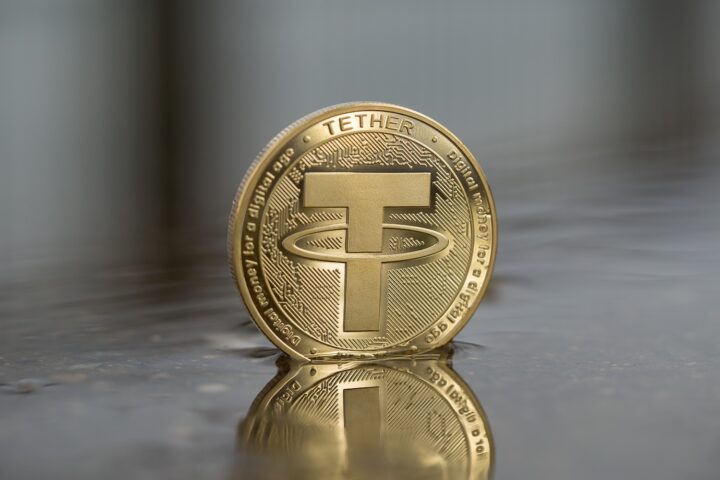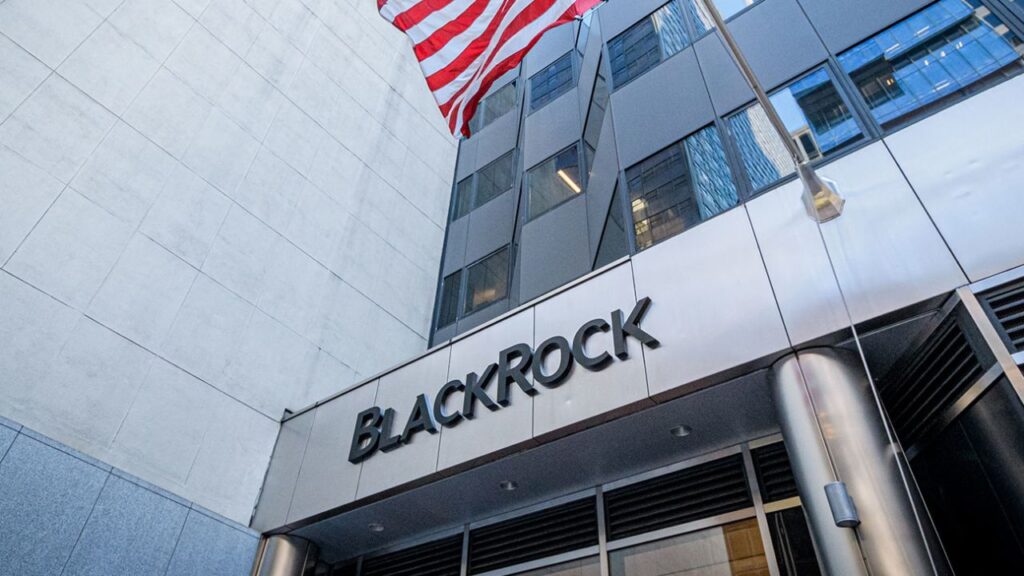Cathie Wood, the CEO and founder of ARK Investment Management, has expressed her optimism about Coinbase following Ripple’s recent legal victory over the Securities and Exchange Commission (SEC) on July 13.
While Wood acknowledged that the ruling did not entirely favor Ripple, she still viewed it as a positive development for cryptocurrency exchanges as a whole.
Wood’s sentiments align with those of other experts in the crypto industry who believe that the ruling, which determined that XRP tokens sold on exchanges were not securities, could set a favorable precedent for Coinbase and Binance in their ongoing legal battles with the SEC.
Despite receiving a Wells notice in March and facing a lawsuit from the SEC in June, Coinbase’s share price did not reach new lows, indicating resilience in the value of the company’s stock.
READV MORE: Ex-Federal Prosecutor Surprised by Potential SEC Appeal in Ripple Case
On July 17, three of Wood’s ARK Investment exchange-traded funds (ETFs) took advantage of Coinbase’s recent rally and sold a total of 248,838 shares, amounting to $26.3 million at the time.
This came after the ARK Innovation ETF sold an additional $12 million worth of Coinbase stock on July 11.
Coinbase’s shares have seen a significant surge since the beginning of 2023, starting at $33.60 per share and reaching $105.55 at the time of publication, marking an increase of over 184%, according to TradingView data.
While many industry insiders are becoming increasingly bullish on Coinbase, analysts from Berenberg Capital Markets have cautioned that several regulatory aspects concerning crypto exchanges are yet to be resolved.
In an investment note on July 17, lead analyst Mark Palmer highlighted Coinbase Earn, a product offering yield on crypto staking, as particularly vulnerable to being classified as a security.
Palmer’s concerns stemmed from Judge Analisa Torres’ remarks in her ruling on the Ripple case.
In conclusion, Cathie Wood’s positive outlook on Coinbase in light of Ripple’s legal victory reflects a growing optimism within the crypto industry.
However, analysts warn that regulatory challenges for crypto exchanges are still unresolved, and specific products like Coinbase Earn may face scrutiny.
Other Stories:
Web3 Needs Asset Protection, and This Startup Wants to Make it Widely Available
Bitcoin On-Chain Data Reveals $30,000 as Most Popular ‘Buy’ Level
The Israel Defense Forces (IDF) has incorporated artificial intelligence (AI) into its operations to select targets for air strikes and coordinate wartime logistics, amid escalating tensions in the occupied territories and with Iran.
While specific details remain classified, the IDF employs an AI recommendation system to analyze large amounts of data and identify targets for air strikes.
The subsequent planning and execution of raids are facilitated by another AI model called Fire Factory, which calculates munition loads, assigns targets to aircraft and drones, and proposes a schedule.
Human operators oversee these systems and approve individual targets and air raid plans. However, there is currently no international or state-level regulation governing the use of this technology.
Supporters argue that AI algorithms can surpass human capabilities and potentially minimize casualties.
Critics, on the other hand, caution against the potential deadly consequences of relying on increasingly autonomous systems.
Concerns arise regarding accountability and the lack of explainability in AI decision-making. Mistakes or errors in AI calculations could lead to devastating consequences, such as the unintended destruction of innocent lives.
READ MORE: Former SEC Official Criticizes Ripple Ruling as ‘Troublesome on Multiple Fronts’
The IDF has gained battlefield experience with AI systems during periodic conflicts in the Gaza Strip, where it employs AI to identify rocket launchpads and deploy drone swarms.
Israel also conducts raids in Syria and Lebanon, targeting weapons shipments to Iran-backed militias like Hezbollah.
As tensions with Iran escalate, the IDF anticipates retaliatory actions from Iranian proxies in multiple fronts, necessitating AI-based tools like Fire Factory for rapid decision-making and response.
The IDF has expanded its use of AI across various units to position itself as a global leader in autonomous weaponry.
It has developed a vast digital architecture, encompassing drone and CCTV footage analysis, satellite imagery interpretation, electronic signals analysis, and other data processing for military purposes.
The Data Science and Artificial Intelligence Center, operated by the IDF’s 8200 unit, plays a crucial role in interpreting this torrent of information.
The secretive nature of AI development raises concerns about the potential for semi-autonomous systems to transition into fully autonomous killing machines, removing humans from decision-making positions.
One worry is that the rapid adoption of AI surpasses research into its inner workings. The lack of transparency in how algorithms reach their conclusions and the involvement of private companies and militaries in algorithm development further exacerbate these concerns.
While the IDF acknowledges the complexity of understanding AI decision-making, it claims that its military AI systems leave behind traceability, allowing human operators to recreate the steps taken by the AI.
Ethical concerns surround the development and use of AI in military applications.
Israeli leaders have expressed their intention to make the country an “AI superpower,” but details regarding investment and specific defense contracts remain undisclosed.
The lack of an international framework to address responsibility for civilian casualties or unintended escalations caused by AI systems is a significant challenge.
The need for rigorous testing and data training to ensure precision and accuracy in AI systems is another critical consideration.
Some experts argue that integrating AI into battlefield systems can potentially reduce civilian casualties and improve operational efficiency.
However, the risks and potential negative outcomes cannot be overlooked.
Calls have been made for the IDF to restrict the use of AI exclusively to defensive purposes, emphasizing the importance of value-based decisions that cannot solely rely on AI.
In conclusion, the IDF’s use of AI in target selection and logistics coordination presents both advantages and ethical concerns.
While AI has the potential to enhance military capabilities, the lack of transparency, accountability, and regulation raise significant questions about the consequences of relying on increasingly autonomous systems in conflict scenarios.
Other Stories:
Binance Integrates Bitcoin Lightning Network for Lightning-Fast BTC Transactions
Primed For Major BTC Rally? SEC Begins Review of BlackRock’s Bitcoin ETF Application
According to recent on-chain data, the popular “buy” level for Bitcoin (BTC) is at $30,000, as indicated by the highest number of transactions occurring near this price point. Glassnode, a crypto analytics firm, monitors unspent transaction outputs (UTXOs) and reveals that the largest number of UTXOs were created at a price of $30,200.
To accurately reflect real purchasing events, the firm excludes coin movements between addresses controlled by the same entity and supply held on exchanges, which could distort the mean purchasing price.
The data suggests that there is significant demand for BTC at the $30,000 level, despite the current price action stalling. In fact, 3.8% of the total BTC supply was last moved at $30,200, surpassing even the volume moved at $16,500, which marked the area near the 2022 post-FTX bottom.
These findings have led some market participants, such as pseudonymous trader Mikybull Crypto, to anticipate a potential significant movement in the BTC price.
Furthermore, additional on-chain data supports the notion that long-term holders are uninterested in selling their BTC, despite the price doubling this year.
Glassnode’s Hodled or Lost Coins metric, which examines the “liveliness” of the Bitcoin blockchain, reveals that “old and large stashes” of BTC continue to reach new record highs.
This metric provides insights into the supply’s stagnancy and includes BTC that is likely to be inaccessible indefinitely, such as when owners lose access to their wallets.
Read our review of the best Crypto PR agencies
Currently, the Hodled or Lost Coins segment accounts for 7.77 million BTC, equivalent to approximately $233 billion.
This represents the highest tally in the past five years.
Previous estimates have suggested that around 20% of Bitcoin’s total supply of 21 million units may already be permanently locked from circulation.
In summary, the on-chain data indicates that the $30,000 level is the most popular “buy” level for Bitcoin, with a significant number of transactions occurring at this price.
Additionally, long-term holders are reluctant to sell their BTC, resulting in a stagnant supply. These insights provide valuable information for market participants and suggest that a significant price movement may be on the horizon.
Other Stories:
Investor Spends $1.04 Million on PEPE Coin as Ripple CEO Criticizes SEC in Landmark Case
ARK Invest Sells More Coinbase Shares, Expands Investments in Meta Platforms and Robinhood
Synthetix Expands DeFi Offering with Introduction of Infinex Derivatives Exchange
AnubisDAO, a decentralized finance (DeFi) project inspired by dogs, fell victim to a rug-pulling incident nearly two years ago.
The perpetrators made off with almost $60 million worth of Ether (ETH). However, the stolen funds have resurfaced as they were recently discovered being moved through Tornado Cash.
Back in October 2021, AnubisDAO managed to raise 13,556 ETH from cryptocurrency investors, capitalizing on the popularity of Dogecoin (DOGE) at the time.
Unfortunately, within just 20 hours of the investment, the funds were maliciously sent to a different address, resulting in a complete loss for the unsuspecting investors.
Fast forward to the present, and it has been revealed that the illicitly obtained funds were channeled through Tornado Cash, a decentralized protocol known for facilitating private transactions.
READ MORE:Synthetix Expands DeFi Offering with Introduction of Infinex Derivatives Exchange
The individuals responsible for the theft divided the 13,556 ETH into multiple transactions of 100 ETH each, as evidenced by a transaction history screenshot.
PeckShield, a blockchain investigator, alerted the community to the exploit when t. value of the 13,556 ETH stood at approximately $60 million.
As of the time of writing, the stolen funds are now worth around $26.2 million.
While some of the defrauded investors hold out hope for a recovery of their funds once the bear market improves, such an outcome is highly unlikely.
Consequently, potential investors are strongly advised to conduct thorough research on projects and their founders before committing any funds.
The consequences of the multichain exploit extended beyond AnubisDAO. Geist Finance, a lending protocol, was compelled to permanently shut down due to losses resulting from the exploit.
In a recent announcement, the Geist Finance team confirmed that lending and borrowing services will not be reinstated.
Furthermore, a technical complication related to this incident renders it “impossible” for Geist Finance to resume lending.
Reactivating lending functionality would result in unfavorable debt for holders of non-Multichain coins such as Magic Internet Money (MIM) or Fantom (FTM), which are currently valued at $0.26.
The incident involving AnubisDAO serves as a reminder of the risks associated with investing in the crypto space. Vigilance, thorough due diligence, and caution are essential when considering investments in DeFi projects.
Other Stories:
Eeon Intervenes in SEC Lawsuit Against Binance, Seeks Representation for Customers
Investor Spends $1.04 Million on PEPE Coin as Ripple CEO Criticizes SEC in Landmark Case
ARK Invest Sells More Coinbase Shares, Expands Investments in Meta Platforms and Robinhood
Aave, a decentralized finance (DeFi) protocol, has recently launched GHO, a new algorithmic stablecoin pegged to the United States dollar (USD) on the Ethereum mainnet.
Currently, there is approximately $2.19 million worth of GHO in circulation.
In a blog post on July 16, Aave introduced GHO as a decentralized and over-collateralized asset.
The stablecoin is backed by various digital assets, including Ethereum’s native currency Ether (ETH) and Aave’s native token AAVE.
The launch of GHO on the Ethereum mainnet followed a community governance vote, with an overwhelming majority of 424 participating addresses voting in favor of the stablecoin.
Aave aims to address transparency concerns associated with centralized stablecoins like Tether’s USDT.
The assets supporting GHO are transparent and verifiable through on-chain data, ensuring accountability.
Aave highlighted that all transactions involving GHO are executed via self-executing smart contracts, and the data related to these transactions is readily available and auditable from the blockchain or through user interfaces.
READ MORE: Synthetix Expands DeFi Offering with Introduction of Infinex Derivatives Exchange
Moreover, Aave announced that the revenue generated by GHO would contribute to its decentralized autonomous organization (DAO) treasury. The governance of GHO is entrusted to AAVE and stkAAVE token holders.
The GHO stablecoin is accessible to the public, allowing anyone to mint GHO using the assets they supply as collateral into the Aave Protocol V3 Ethereum market.
This ensures that GHO is overcollateralized by multiple assets, enhancing its stability and security.
GHO’s launch adds to the growing number of DeFi-native algorithmic stablecoins.
Previously, on May 4, Curve, another DeFi protocol, introduced its flagship algorithmic stablecoin crvUSD.
However, MakerDAO’s Ethereum-based stablecoin DAI remains the largest algorithmic stablecoin in circulation, with a market capitalization of approximately $4.28 billion according to DefiLlama data.
Although decentralized stablecoins like GHO are gaining traction, the centralized stablecoin market continues to be dominated by issuers such as Tether and Circle.
Tether’s USDT and Circle’s USD Coin (USDC) account for 87% of the total circulating supply of USD-pegged stablecoins.
Currently, GHO is trading slightly below its targeted $1 peg, with a price of $0.9927 and reaching a low of $0.9814 on July 16, according to CoinMarketCap.
Cointelegraph reached out to Aave for comment but has yet to receive a response.
Other Stories:
Investor Spends $1.04 Million on PEPE Coin as Ripple CEO Criticizes SEC in Landmark Case
ARK Invest Sells More Coinbase Shares, Expands Investments in Meta Platforms and Robinhood
Eeon Intervenes in SEC Lawsuit Against Binance, Seeks Representation for Customers
Binance, a popular cryptocurrency exchange, has successfully integrated the Bitcoin Lightning Network into its platform, enabling users to make BTC withdrawals and deposits using this layer-2 scaling solution.
In a blog post on July 17, Binance confirmed the development and highlighted the availability of the Lightning Network option for Bitcoin transactions, alongside other choices such as BNB Smart Chain, BNB Beacon Chain, BTC (SegWit), and Ethereum ERC-20.
The decision to integrate the Lightning Network came after Binance temporarily halted BTC withdrawals in May due to a surge in pending transactions caused by high network gas fees.
These fees were primarily driven by the emergence of memecoins in the form of BRC-20 tokens, which introduced a new token standard on the Bitcoin network.
READ MORE: Investor Spends $1.04 Million on PEPE Coin as Ripple CEO Criticizes SEC in Landmark Case
The integration of the Lightning Network was first hinted at by Binance in May, but it was officially announced on June 20 when users noticed Binance’s Lightning nodes.
Binance now joins the ranks of other prominent exchanges such as Bitfinex, River Financial, OKX, Kraken, and CoinCorner that have embraced this layer-2 scaling solution.
In April, Coinbase CEO Brian Armstrong expressed his intention to integrate the Bitcoin layer 2 network on Coinbase, but no specific timeline was provided.
The Lightning Network is designed to enhance the speed and cost-effectiveness of Bitcoin transactions by enabling users to establish off-chain transaction channels.
With the Lightning Network integration, Binance aims to provide its users with a more efficient and seamless experience when conducting Bitcoin transactions.
By leveraging this layer-2 scaling solution, users can enjoy faster and more cost-effective transfers, thereby addressing the challenges posed by high transaction fees and network congestion.
As the cryptocurrency industry continues to evolve, the adoption of technologies like the Lightning Network represents an important step towards improving the scalability and usability of cryptocurrencies.
The integration of this solution by Binance and other leading exchanges underscores the growing recognition of the Lightning Network’s potential to enhance the efficiency and accessibility of Bitcoin transactions, ultimately benefiting users across the ecosystem.
Other Stories:
Synthetix Expands DeFi Offering with Introduction of Infinex Derivatives Exchange
Eeon Intervenes in SEC Lawsuit Against Binance, Seeks Representation for Customers
ARK Invest Sells More Coinbase Shares, Expands Investments in Meta Platforms and Robinhood
The United States Securities and Exchange Commission (SEC) has taken a significant step in the potential approval of a spot Bitcoin exchange-traded fund (ETF).
BlackRock, a prominent financial firm, has had its application accepted by the SEC, following a similar acknowledgment of Bitwise’s application the previous day.
Accepting BlackRock’s proposal marks the beginning of the official review process for their ETF.
While this is just the initial stage of a lengthy regulatory journey, it signifies the SEC’s willingness to explore the concept of a spot Bitcoin ETF and evaluate its potential impact on the market.
ETFs are investment funds that typically track specific indexes and are commonly traded on exchanges.
In the realm of cryptocurrencies, a cryptocurrency ETF refers to a fund that mirrors the value of one or more digital tokens and encompasses a range of cryptocurrencies.
On July 14, the SEC also announced that it is currently reviewing applications for various funds, including Wise Origin Bitcoin Trust, WisdomTree, VanEck, and Invesco Galaxy.
READ MORE: Bitcoin Long-Term Holders Return as BTC Price Surges
BlackRock’s participation in the race to launch a spot Bitcoin ETF holds great significance due to its stature in the financial industry.
Their filing for a spot Bitcoin ETF includes an agreement for “surveillance-sharing” with Coinbase, a prominent cryptocurrency exchange.
The competition among companies striving to be the first to introduce a Bitcoin ETF in the United States is viewed as a positive development for the crypto industry.
With multiple applications being considered, the chances of success increase, and the diverse proposals allow the SEC to evaluate different strategies and concerns.
While the SEC has not yet approved a spot Bitcoin ETF in the United States, such financial products are already available in Canada.
Regulators in the country have approved three significant funds: Purpose Bitcoin, 3iQ CoinShares, and CI Galaxy Bitcoin.
The acceptance of BlackRock’s application and the ongoing review process for other ETF proposals indicate a growing recognition of the potential of cryptocurrencies in the mainstream financial sector.
As the SEC continues its evaluation, the market eagerly awaits the decision on the first spot Bitcoin ETF in the United States.
Other Stories:
Coinbase Temporarily Suspends Staking Services
SEC Stresses Crucial Clarification Amid Coinbase Battle
Cardano Surges 23.9% Following Favorable XRP Ruling, Investors Eye Further Gains
Fantom network’s co-founder, Andre Cronje, expressed his concern over Multichain’s recent troubles, stating that it dealt a significant blow to the smart contract platform.
In recent weeks, Fantom has witnessed a sharp decline in activity. Data from DefiLlama revealed that Fantom’s total value locked (TVL) plummeted from over $364 million in early May to approximately $70 million on July 14. In 2022, the platform’s TVL reached its peak at $7.5 billion.
Additionally, the price of Fantom’s native token, Fantom (FTM), decreased from $0.41 to $0.28 within the same period.
Cronje conveyed his disappointment in a thread on Fantom’s forum, stating that Multichain’s failure had a profound impact.
He had received numerous assurances from the Multichain team regarding server decentralization, access, and geolocation distribution.
Reflecting on the situation, Cronje emphasized the need to “don’t trust, verify” even within his own projects.
READ MORE: Bitcoin Long-Term Holders Return as BTC Price Surges
Multichain made an announcement on July 14, revealing that it would be ceasing operations due to the arrest of its CEO in May.
As the sole controller of Multichain’s servers, the CEO’s arrest left the company in disarray.
Compounding the challenges faced by Multichain, the platform fell victim to an exploit on July 6.
The exploit resulted in the withdrawal of over $125 million worth of cryptocurrencies from multiple wallets, impacting the Ethereum side of Fantom, Moonriver, and Dogechain bridges.
These withdrawals accounted for a significant portion of the funds held on each bridge.
It was discovered that Multichain had stored all shards of its private keys in a “cloud server account” controlled solely by its CEO.
This cloud server account was subsequently utilized by an unauthorized individual to drain funds from the protocol.
The repercussions of Multichain’s issues also extended to the lending protocol Geist Finance, which was forced to permanently shut down due to losses incurred from the exploit.
Prior to the hack, Geist Finance had over $29 million worth of crypto assets locked in contracts on the Fantom network. The closure of Geist Finance had a profound impact on Fantom’s TVL.
In response to the exploit, stablecoin issuers Circle and Tether have frozen more than $65 million in assets associated with the attack.
Fantom is actively collaborating with both companies to explore options for native issuance and reviewing rollups for native bridge infrastructure.
Cronje affirmed their commitment to recover assets, stating that they are engaging with relevant organizations in pursuit of a solution.
Other Stories:
Cardano Surges 23.9% Following Favorable XRP Ruling, Investors Eye Further Gains
Lending protocol Geist Finance has announced its permanent closure due to significant losses resulting from the Multichain exploit, according to a social media post from the development team on July 14.
The protocol, which operated on the Fantom network, temporarily paused its contracts on July 6 and then resumed limited functionality, allowing only withdrawals and repayments, on July 9.
However, the latest announcement confirms that Geist Finance will not reopen for lending and borrowing activities.
Before the exploit occurred, Geist Finance had locked over $29 million worth of cryptocurrency assets in its contracts.
The lending protocol permitted users to borrow, lend, and utilize bridged tokens from the Multichain platform as collateral, including tokens such as USD Coin (USDC), Tether (USDT), Bitcoin (BTC), and Ether (ETH).
Chainlink oracles were employed to track the prices of these assets and determine their collateral and loan values.
READ MORE: Worldcoin’s World ID Project Surpasses 2 Million Users
The recent social media post revealed that the Chainlink oracles had ceased to provide reliable information.
They were now listing the values of the non-bridged, or “real,” versions of each coin, which were more than four times the value of their Multichain derivatives.
As a consequence, reopening lending activities would result in bad debt for holders of non-Multichain coins, rendering it impossible to resume operations.
Geist Finance clarified that it did not hold Chainlink oracles responsible for its closure and placed blame on Multichain.org.
Blockchain analytics experts initially reported the Multichain exploit on July 7. Over $100 million had been withdrawn from the Ethereum side of Multichain bridges, affecting platforms like Dogechain, Fantom, and Moonriver.
While the Multichain team labeled the transactions as “abnormal” and advised users to stop utilizing the protocol, they refrained from explicitly referring to it as a hack or exploit.
Further investigations by on-chain sleuths and Twitter user Spreek on July 11 unveiled an unknown individual draining funds from the protocol using a fee-based exploit.
On July 14, the Multichain team confirmed that the withdrawals on July 7 resulted from a hack.
It was discovered that all shards of the network’s private keys were stored in a cloud server account controlled solely by the CEO, who had been apprehended by Chinese authorities.
Subsequently, the cloud server account was accessed by an unauthorized party to siphon funds from the protocol.
In an attempt to recover the assets, the Multichain team engaged in a fee-based counter-exploit initiated by the CEO’s sister on July 11.
However, she was later arrested, and the status of the assets she recovered remains uncertain.
Other Stories:
Ripple’s XRP Victory Against SEC: A Blow to Regulator’s ‘War on Crypto’
Monochrome Asset Management Proposes Bitcoin ETF on ASX
OpenAI Faces FTC Investigation Over Privacy and Data Practices
Coinbase, a prominent cryptocurrency exchange based in the United States, has made the decision to temporarily halt customers in four states from staking additional assets due to ongoing legal proceedings initiated by local regulators.
In a blog post published on July 14, Coinbase announced that users located in California, New Jersey, South Carolina, and Wisconsin would be restricted from utilizing specific staking services until further notice.
This move comes after the U.S. Securities and Exchange Commission (SEC) filed a lawsuit against the exchange in June, alleging the offering of unregistered securities.
Consequently, regulatory bodies in ten states took their own legal actions, leading Coinbase to suspend certain services.
Coinbase expressed its disagreement with the accusation that their staking services are considered securities, stating, “We strongly disagree with any allegation that our staking services are securities.”
READ MORE: Monochrome Asset Management Proposes Bitcoin ETF on ASX
However, the exchange emphasized its commitment to fully complying with the preliminary state orders, even before having an opportunity to defend itself.
According to Coinbase, the pause in staking additional assets is only applicable to the regulatory actions taken in California, New Jersey, South Carolina, and Wisconsin.
Users based in Alabama, Illinois, Kentucky, Maryland, Vermont, and Washington can continue to stake cryptocurrency as they did prior to the regulatory proceedings.
This announcement followed the first pre-motion hearing in the SEC’s case against Coinbase.
The commission filed the lawsuit on June 6, alleging that the exchange has been operating as an unregistered security broker since 2019. Coinbase has consistently denied these allegations.
In recent times, both state and federal regulators have targeted various cryptocurrency firms for their staking services, arguing that such services violate securities laws.
In February, Kraken, another prominent exchange, reached a $30-million settlement with the SEC, necessitating the cessation of staking services and programs for its U.S. clients.
Coinbase’s decision to temporarily halt staking services in certain states reflects the growing scrutiny and legal complexities surrounding the cryptocurrency industry.
As regulatory actions and lawsuits continue, exchanges are navigating the challenges posed by compliance requirements while striving to defend their business practices.
Other Stories:
Ripple’s XRP Victory Against SEC: A Blow to Regulator’s ‘War on Crypto’
Worldcoin’s World ID Project Surpasses 2 Million Users
OpenAI Faces FTC Investigation Over Privacy and Data Practices












